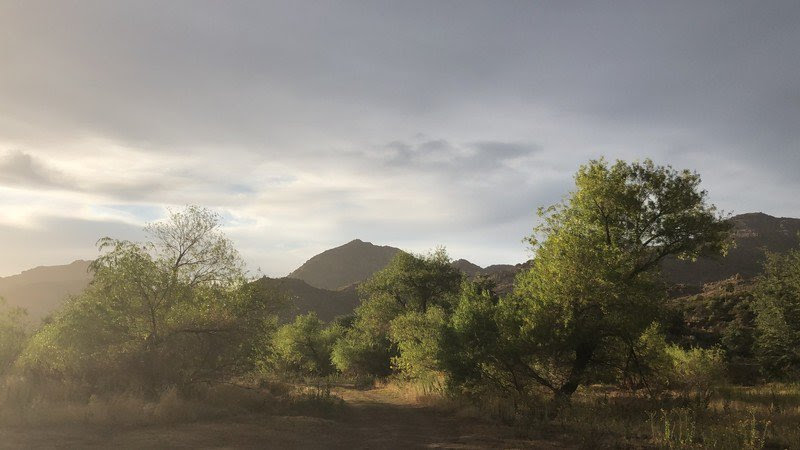
- Details
- By Kaili Berg
The San Carlos Apache Tribe is celebrating a significant legal victory after a federal judge temporarily blocked the controversial transfer of Oak Flat, a sacred Apache site, to a foreign-owned mining company.
In a ruling issued Friday, U.S. District Judge Dominic W. Lanza ordered the U.S. Forest Service to delay any land exchange with Resolution Copper until at least 60 days after the release of a Final Environmental Impact Statement (FEIS), expected June 16.
The order grants the Tribe critical time to challenge the legality of the transfer and to request an injunction before irreversible steps are taken.
“We are grateful that Judge Lanza has provided us an opportunity to be heard,” San Carlos Apache Tribe Chairman Terry Rambler said in a statement. “The two-month window provides the Tribe an opportunity to file an amended lawsuit challenging the legality of the pending environmental report and request an injunction to stop the land exchange until the merits of our case are settled.”
The planned land exchange would hand over 2,422 acres of Tonto National Forest, including Oak Flat, or Chi’chil Biłdagoteel in Apache, to Resolution Copper, a mining venture jointly owned by London-based Rio Tinto (55%) and Australian firm BHP (45%).
The area, 70 miles east of Phoenix, is a sacred ceremonial site for the Apache and listed in the National Register of Historic Places as a Traditional Cultural Property.
Resolution plans to eventually turn Oak Flat into a massive mining crater roughly two miles wide and over 1,000 feet deep.
The land swap was authorized by a last-minute addition to the FY2015 National Defense Authorization Act, pushed through by then-U.S. Senators John McCain and Jeff Flake, both Republicans who represented the state of Arizona.
The provision bypassed normal legislative procedures and public input, sparking years of backlash from tribal nations, environmental groups, and civil society.
“The bill that authorized the land exchange is not in the best interest of the American people, Arizona or the San Carlos Apache Tribe,” said Rambler. “We have filed this lawsuit because of our concerns of the mine’s massive use of groundwater, which will be devastating for both Arizona and eventually the Tribe. We are also deeply concerned about the environmental destruction and the obliteration of Oak Flat will have on Apache culture and religion.”
Adding to concerns is the international ownership structure of Resolution Copper. Rio Tinto’s largest investor is the Chinese state-owned Aluminum Corporation of China, which holds a 14.6% stake.
More Stories Like This
NCAI Passes Two Emergency Resolutions on Immigration Enforcement ActivitiesChickasaw Lighthorse Police Officer named Indian Country Law Enforcement Officer of the Year
Indian Gaming Association Rallies Broad Coalition Against Sports Event Contracts It Calls Illegal Threat to Tribal Sovereignty
Navajo Resources and Development Committee Issues Notice on Livestock Inspection Requirements
American Prairie, Tribal Coalition Files Protest Over Rescinded Grazing Rights
Help us defend tribal sovereignty.
At Native News Online, our mission is rooted in telling the stories that strengthen sovereignty and uplift Indigenous voices — not just at year’s end, but every single day.
Because of your generosity last year, we were able to keep our reporters on the ground in tribal communities, at national gatherings and in the halls of Congress — covering the issues that matter most to Indian Country: sovereignty, culture, education, health and economic opportunity.
That support sustained us through a tough year in 2025. Now, as we look to the year ahead, we need your help right now to ensure warrior journalism remains strong — reporting that defends tribal sovereignty, amplifies Native truth, and holds power accountable.
 The stakes couldn't be higher. Your support keeps Native voices heard, Native stories told and Native sovereignty defended.
The stakes couldn't be higher. Your support keeps Native voices heard, Native stories told and Native sovereignty defended.
Stand with Warrior Journalism today.
Levi Rickert (Potawatomi), Editor & Publisher


